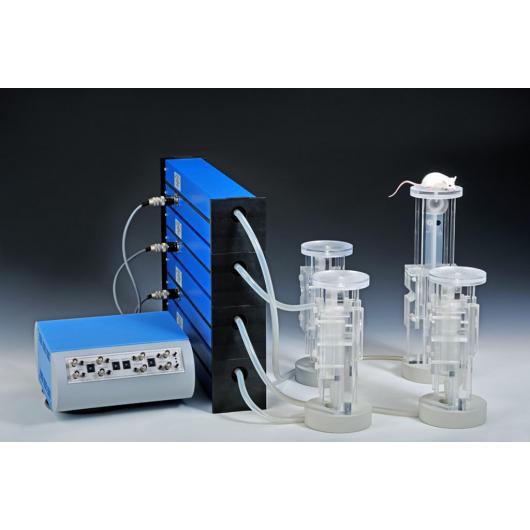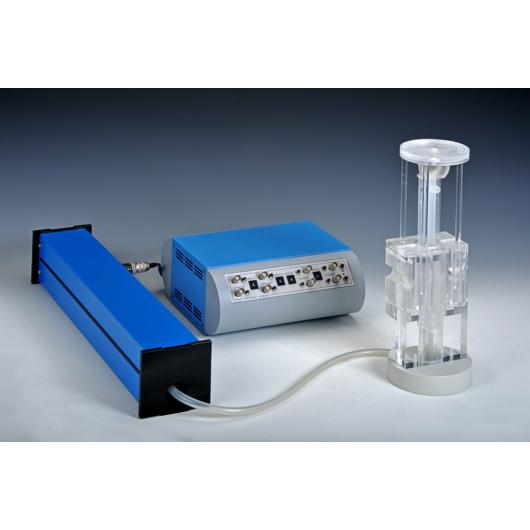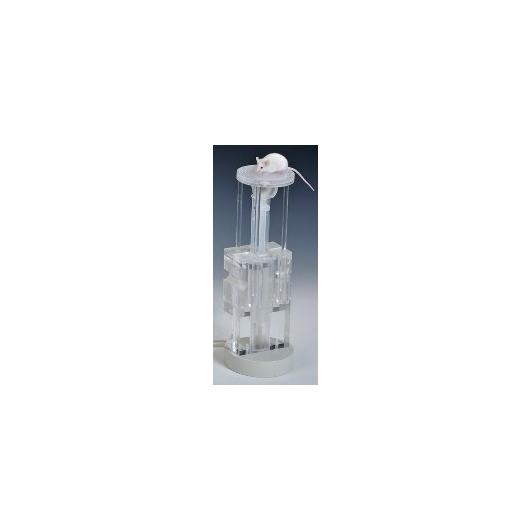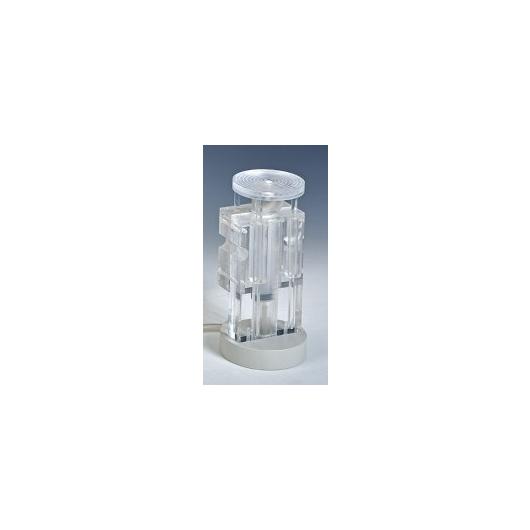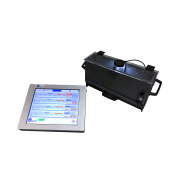



Remote-Controlled Atlantis Platforms for Morris Water Maze
Features
- 4 Platforms with one Controller
- Remote lifting/lowering control
- Hydraulic system
- Manually or automated mode
Benefits
- Consistency of positioning in the 4 quadrants
- No more hands in the pool!
- No electricity in the pool
- Upward/downward movement precisely managed by controller and/or software
Applications
As described in the paper “The Atlantis Platform: A New Design and Further Developments of Buresova's On-demand Platform for the Water Maze” by R.I.W. Spooner et alia, in the widely used spatial learning task of the water maze is a (Morris 1981, 1984) rats (or mice) will rapidly learn to take relatively direct paths to the platform, indicating that they may have learned its spatial location.
Transfer tests, sometimes called probe tests, in which the platform is removed from the pool, offer further evidence of true spatial learning, as trained animals display a search pattern focusing on the platform location in the training quadrant.
For this reason, and despite its efficacy, the water maze task has some limitations: animals may develop strategies for finding the platform, such as circling at roughly the appropriate distance from the sidewall, which do not actually require them to learn where the platform is located, hence leading to falsely interpreted spatial learning.
To overcome these limits, the Atlantis platform was designed by Buresova et al. (1985) and validated in the above mentioned paper, proving that the platform is highly (100%) reliable and showing significantly improved localization of rats trained to the Atlantis platform compared with those trained to the regular hidden platform.
The Platform gradual rise to a position just below the water surface causes minimal behavioral disruption. The rats treat it as an escape platform in exactly the same way as the regular platform.
- D. Ryan et alia: "Spatial Learning Impairments in Plb1triple Knock-In Alzheimer Mice are Task-Specific and Age-Dependent" Cellular and molecular life sciences 70(14): 2603-2619, 2013
Method Paper
- R.I.W. Spooner et al.: ”The Atlantis Platform: A New Design and Further Developments of Buresova’s On-demand Platform for the Water Maze” Learn. Mem. 1: 203-211, 1994
- G. Riedel et al.: “Reversible Neural Inactivation Reveals Hippocampal Participation in Several Memory processes” Nature Neurosc. 2 (10): 898-905, 1999
- I.Q. Wihshaw et al.: “The Behavior of the Laboratory Rat: A Handbook with Tests” Oxford Univ. Press, USA: 1, 2004

